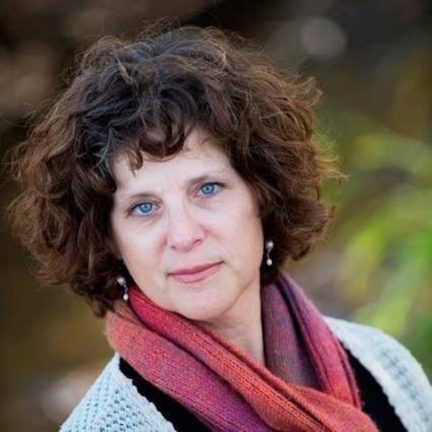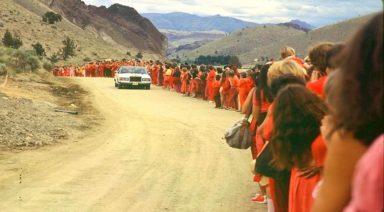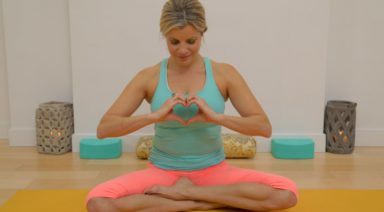Caroline Myss’s Sacred Power: Self Esteem and the Power of Choice
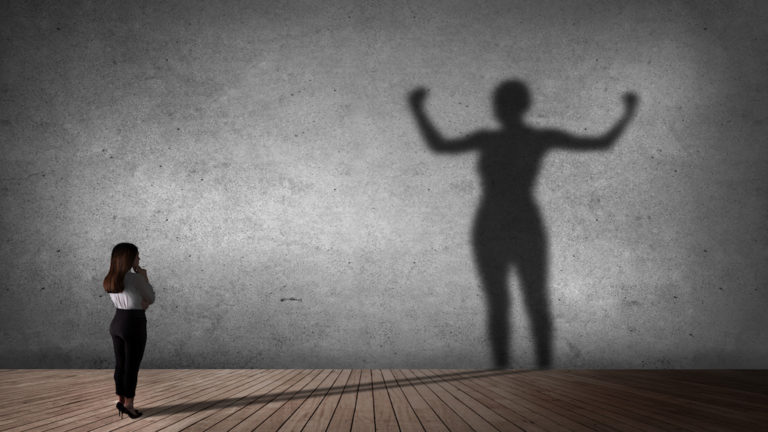
Self-esteem is misrepresented, according to Caroline Myss, leading expert in medical intuition, energy medicine, human consciousness, and higher living. “To esteem the self means to recognize what the power of your soul is,” she says.
Myss’s new Gaia series “Sacred Power,” takes viewers on a journey into how self-esteem and the power of choice profoundly impact the development of our soul and our ability to live wholly.
Self Esteem and the Power of Your Soul
Myss looks beyond the first layer of what we normally associate with self-esteem to the deeper, core ingredients: intuitive clarity and trust in oneself. As opposed to being something that gains us attention, self-esteem at its highest purpose is quiet, self-contained, liberates us from seeking others’ approval, and sustains our health and well-being.
The strength that comes from developing a healthy self-esteem, in which we rely on our values and personal sense of integrity, help us to create a resiliency that is, as Myss says, “unshakeable no matter the circumstances.” Learning to develop one’s self-esteem in this way is not an option, Myss advises; today’s demanding and stressful world makes it a necessity.
Quantum Power and Self Esteem
Myss believes we are in an era where we are the first generation to “add power to self.” What does she mean by that? All we have to do is look at the personal development and self-empowerment books that line the shelves of our local bookstore. But self-esteem doesn’t fit in one package; it can be best understood by what Myss calls the “Three Levels of Self-Esteem”:
-
- Level One, Survival Self-Esteem: Inner qualities such as cleverness, endurance, physical stamina, or our survival gut instincts.
- Level Two, Inner Self-Esteem: Refinement of personal qualities of character that include courage and integrity, and learning how to rely on your values in life.
- Level Three, Mystical Self-Esteem: Capacity to rely upon your inner spiritual experiences and guidance, creating a harmonious balance between the interior and exterior consciousness.
Myss points out that the deep transformation that emerges from the development of our three levels of self-esteem can not only have a global impact, but is also causing a shift in our relationship to the world, one in which we have become hypersensitive. She relates this to the amount of personal power we contain; by learning how powerful we are and the potency of our words and our lives. We are navigating a “mindfield” that is also a “minefield,” what our mind contains and what we claim as “mine.”
What is Mine? What is Mind?
Hypersensitivity can be the portal to understanding what is “mine,” as well as the “mind” because it can give us critical information about what power feels like.
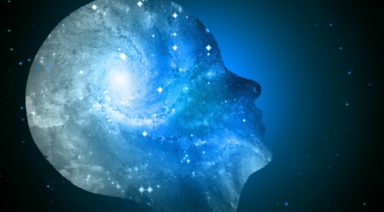
We’re able to learn to transform the small hurts into a sense of mindfulness and personal power that is the “microcosm of our own soul power,” or as Myss calls it, “charism,” the grace an individual soul has; one’s “single tone in this universe.” Myss sees this charism as both a response to our rapidly changing world, and part of a sacred “archetypal initiation” essential to our self-esteem’s fullest potential.
When we move away from worrying about what others will think, we tune into and trust what Myss calls the “interior, the unreasonable self-esteem…where miracles are.” It is the place where we go from living by fate, allowing fear to determine the outcome, to living by destiny, trusting in and listening to our inner guidance. To do so requires that we understand we have a choice, and there is power in our choices.
The Power of Choice
Do you pay attention to how much time you spend in your day being concerned with how other people view you, or giving away your power through accommodation, or what others say about you and your actions? Do you rely on self-guidance, or on other’s guidance? Myss suggests if we offer up our inner life for others to sort through and return to us, rather than relying on our own self-esteem and the power of our own choices, we’re taking the path of fate, and not of destiny.
While the path of destiny is full of risks, it is one rich with inner guidance. It is a path we choose to walk on where our esteemed power is released. “Power is the fundamental ingredient of the human experience,” Myss shares. “And choice, it is our great tool.” As creatures of energy, she continues, our power fuels our being with choice being the expression of our power. But really, how powerful can one active choice make for you, or those around you?
Choice as a Powerful, Transformational Instrument
What if your choices could change the quality of your health, your life, or the direction of our world? What if our choices contained that much power? Well, Myss believes they do; she believes all of us are that powerful to positively impact the way in which our lives unfold. As we are more and more in contact with our intuitive, energetic selves, and the energetic world, we’re beginning to make more energetically-focused choices which contain more power than any physical ones.
Energetic choices assist us in looking beyond the obvious and to attune the underlying energies that are there to help us live in balance and truth. These deeper choices represent “power of one clear truth of one clear choice” and represent what Myss calls our “inner-net,” an energetic grid of life made up of our emotions, thoughts, and actions.
Whether you believe in God, Buddha, or a divine higher energy, Myss teaches that we’re led into “guidance so that you can make a choice. You are always being directed to make choices that empower you.” In fact, she believes we’re living in an “energetic Renaissance” in which every choice needs to be thoughtful and is profound. Myss also believes the times in which we live dictate a different “power strategy,” a strategy based on investing in the power of our life force and life choices.
But in order to develop our “power strategy,” we must learn to discern what choices empower us and which disempower us. To assist with this, Myss shares eight of the most important power biophysical spiritual choices one can make:
-To not betray yourself or others
-To live with integrity and truth
-To know and live your values
-To have a spiritual world view
-To practice kindness
-To be reflective daily
-To be of service
-To empower others
These biophysical spiritual choices are ones, Myss says, that don’t live in the outside world; they can only be seen by the person making the choices and “take place in the world behind your eyes.”
Myss recommends we set aside time every day to take stock of what motivates us, what directs our inner agenda, and the consequences our choices bring with them. For while self-esteem, self-empowerment, and self-choice are at the center of this discussion, every choice has a ripple effect on the whole of our world and we must accept responsibility for how our choices impact the entirety of life itself.
Myss’s “Sacred Power” teachings are ushering us into a new era of authentic power in which if we, individually and collectively, embrace our power, then we can empower others. For Caroline Myss, she considers this “the greatest choice I can do…because I am now giving grace away.”
Toxic Guru Relationships: Osho and the Rajneeshees
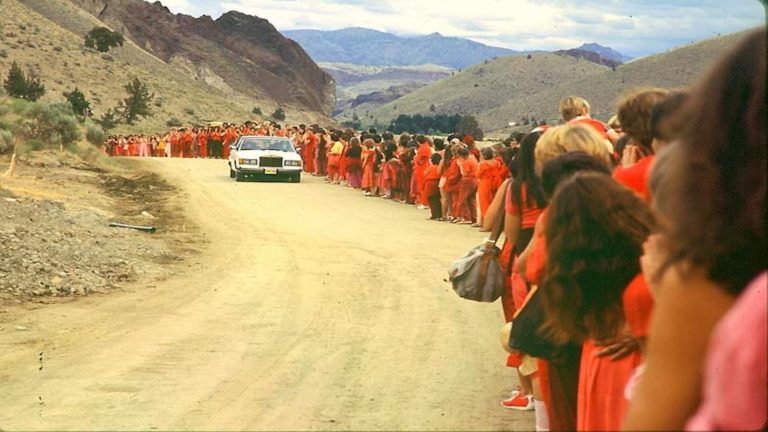
While many agree that Jesus, Buddha, and Guanyin (among others) are enlightened and eternal light-beings, it’s a bit difficult to experience them in three dimensions, let alone receive a hug from them. It might be said that for those who cannot see their internal-masters in a living, breathing human being are missing out on something special.
The moment someone calls themselves a spiritual master, all the beings in all the realms perk up and get to work. These etheric forces will test potential spiritual masters, not to bring them down, instead, to prepare them for the paths of service they declare.
The universe continually seeks ways to infuse the eternal nature of consciousness into human beings. It loves to assist in the births of powerful spiritual avatars. This tendency is one of the most beneficial wonders of this world. Because of it, there’s always an abundance of living spiritual gurus, masters, and sages.
Avatars take births to teach us about love and consciousness, and to challenge our attachment to the physical universe so that we can know the world within us. Much to our collective chagrin, authentic spiritual gurus generally do not seek to validate our financial and physical realities, or reinforce society’s oppressive constructs and rules, although some of them do.
There are some who might judge and condemn today’s living gurus and their disciples, noting that this world is not holy enough to birth a living saint. These naysayers doubt many gurus’ divinity, teachings, and methods. Some protest, picket, and write books about how horrible one guru or God is versus another. These folks probably have similar doubts about themselves.
While discipleship can be a profound and liberating experience, it comes with challenges. A guru will help her followers reduce their attachment to their egos and minds, but she also peels away our layers of illusion and delusion, which, while freeing, can be painful. Being a disciple of a guru is not for the spiritually timid.
This process of devoting oneself to a guru can also be frightening and life-shattering because it has the potential to disrupt the false identities and lives we’ve built. Upon the guru’s glance, our egos might also become inflamed, causing us to think that we are the All and Powerful Oz. Egos don’t always dissolve without a fight.
From the outside, a community centered around a spiritual guru can appear quite insane. Why wouldn’t it? Most people living in traditional society are climbing ladders, pursuing goals, and conquering a temporal world. It’s difficult to defend the eternal against the emanations of the physical, especially to people who have no frame of reference for alternative spirituality, and no interest in change.

